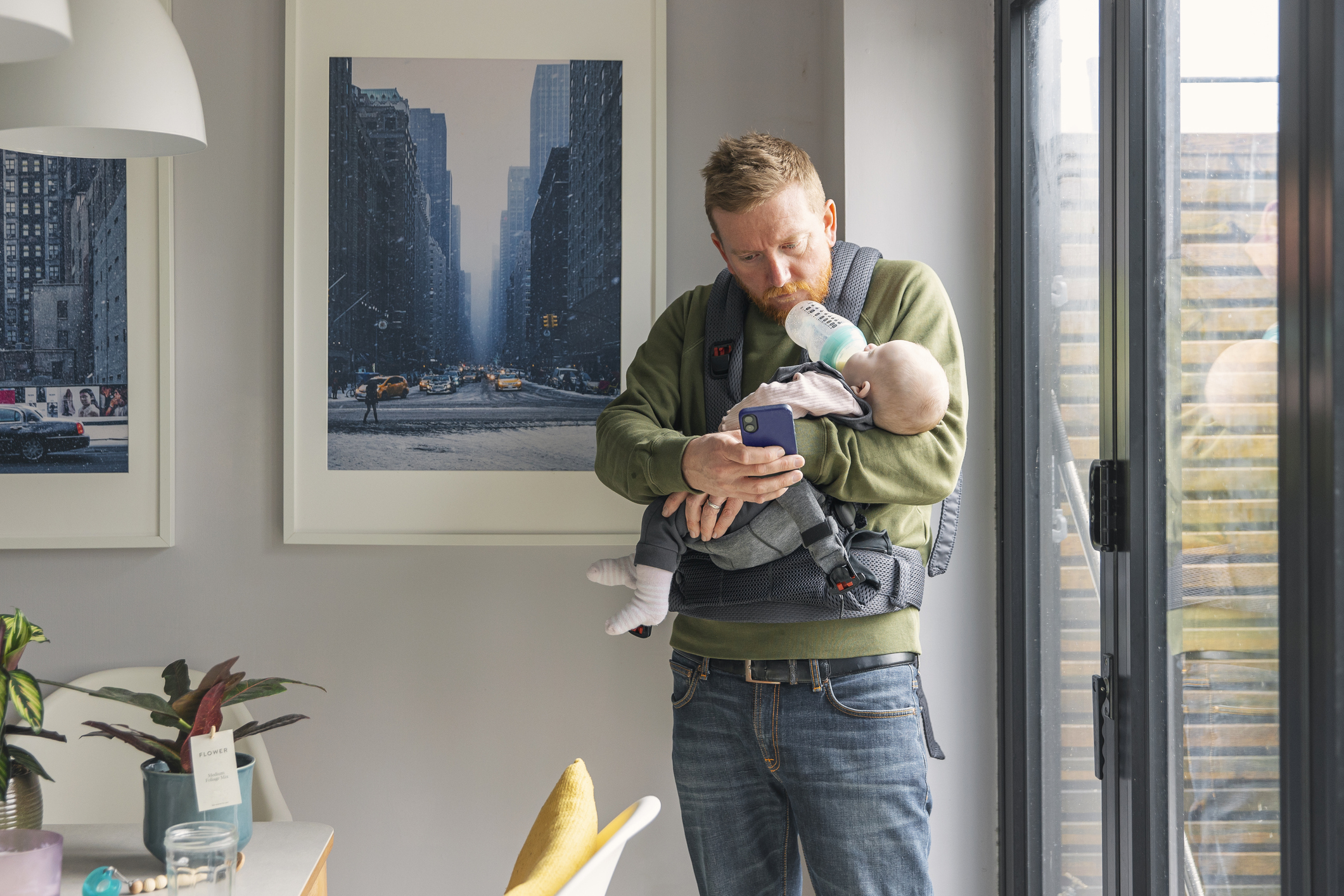
Almost half of parents admit a lack of parental leave at work affected their decision to start a family, with more than 74 per cent blaming the provisions for being 'outdated'.
Several factors can stop a couple from starting a family, from wondering how much does it cost to raise a child to the hidden costs of parenthood - including the ever-rising average childcare costs and the cost of wrap-around care. And that's without talking about parental leave - so it's not surprising that many are put off the idea of having children until they are financially better off.
Kellanova, the parent company of Kellogg's and Pringles, commissioned a study of 500 adults who have had a baby within the last five years or plan to do so, ahead of plans to announce a new co-parent policy for its employees - offering up to 10 weeks of paid leave within a year of the baby's birth. This applies to fathers or same-sex female relationships, where only one parent is currently entitled to take maternity leave.
The study found that 48 per cent admitted parental leave was a major factor in their plans to start a family - as currently only two weeks' leave is given for statutory paternity or co-parent leave and it's often not on full pay. Meanwhile, 74 per cent say the model is "outdated", and 69 per cent don't feel two weeks is long enough to adjust to becoming a new parent, let alone have time to bond with their child.
Elly Campbell Godkin, senior HR manager at Kellanova, which will also offers paid time off for employees who have pregnant partners to attend antenatal classes and appointments, said: “When I had my first child last year, I knew that I didn’t want to take a full year out from work. I’d recently been appointed into a new role that I really wanted to get started in, so my husband and I fully shared our leave.
“We both wanted quality time off with our daughter and taking five months off each allowed us to learn how to be the best parents we could be – as individuals and together.”
More study findings
- One in three parents (32 per cent) believe they would get just the statutory paternity or co-parent leave of up to two weeks paid if they had a child.
- 41 per cent would have felt more relaxed knowing they had more time with their child
- 25 per cent feel they would have experienced more milestones including their child's first smile

The study also found that those who have had a child took an average of nearly three weeks off in paid leave, while 10 per cent only gave themselves seven days at the most. An unsurprising 61 per cent wanted to have more time off with their child, and 32 per cent said it would have helped them get closer to their little one. But 54 per cent couldn’t afford to, while 23 per cent didn’t think it was an option. Other worries over taking time off (particularly for men, 15 per cent) included what their colleagues would think (13 per cent) while some felt it was frowned upon (12 per cent).
Simon Kelleher, head of policy and influencing at Working Families, said: “We welcome Kellanova’s decision to offer an enhanced parental leave package, particularly given that all of its employees will be offered it as a day one right. Our research indicates that individuals may hesitate to take parental leave, due to the negative implications on their finances.
“We encourage other employers to follow suit in implementing enhanced parental leave policies. This not only supports employees during the crucial first year of their child’s life but also underscores the need for action from the government.
“As our Working Families Index polling reveals that only 29 per cent of lower-income working parents have access to enhanced leave, policymakers need to review statutory pay levels, and introduce extended leave for fathers or secondary caregivers.”
In other family news, when debating having a child, could shared parental leave work for your family? and you might be wondering can you earn money while on maternity leave? Rules for new mums explained.







